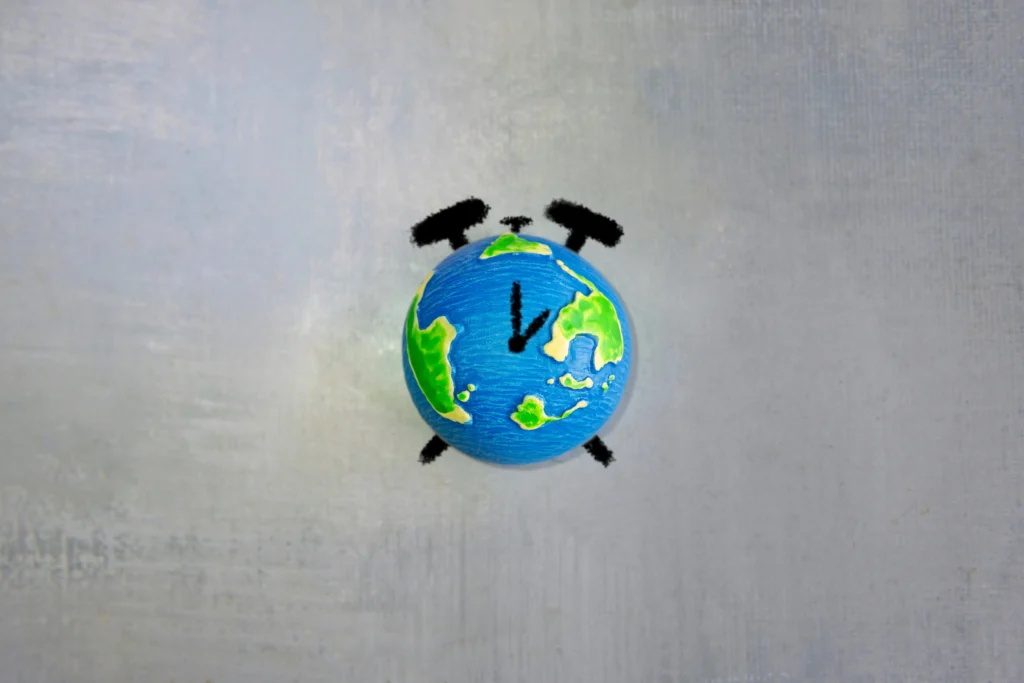We often take for granted that a day on Earth is exactly 24 hours. But what if that wasn’t always true? On July 9, 2025, scientists recorded a remarkable anomaly: Earth completed its full rotation faster than expected, shaving milliseconds off the standard day. While this may seem insignificant to the average person, such an occurrence has triggered excitement—and some concern—among scientists, timekeepers, and space agencies around the globe.
This event is not an isolated oddity. It fits into a broader trend that researchers have been tracking: Earth’s rotation appears to be accelerating, and the consequences, though subtle, could have major ripple effects on everything from our clocks to our communications systems. In this article, we dive deep into what this means, what’s behind it, and why this news matters more than you might think.

A Shorter Day? Understanding Earth’s Changing Spin
For most of human history, we’ve measured time based on the apparent motion of the Sun across the sky—one full spin of the Earth on its axis, which we call a day. But thanks to modern atomic clocks and satellite data, we now know that Earth’s rotation isn’t perfectly consistent. It speeds up and slows down ever so slightly over time, influenced by a variety of natural and geophysical factors.
On July 9, 2025, Earth rotated faster than it has in recent years, clocking in a day that was shorter than the standard 86,400 seconds. Scientists were able to measure the difference using ultra-precise atomic timekeeping. These differences are tiny—just milliseconds—but they matter immensely in fields that rely on pinpoint accuracy.
This isn’t the first time we’ve seen this happen. In fact, 2020 and 2021 featured some of the shortest days on record at the time, and now, in 2025, we’re seeing a continuation—or possibly an intensification—of this trend.

What’s Causing Earth’s Rotation to Accelerate?
You might wonder: How can something as massive as Earth change how fast it spins? The answer lies in complex interactions between the planet’s interior, surface, and surrounding atmosphere.
Here are some leading factors believed to be influencing the acceleration:
- Glacial Melting & Climate Change: As ice melts at the poles, the redistribution of mass changes the planet’s moment of inertia (just like a figure skater pulling in their arms to spin faster).
- Seismic Activity: Major earthquakes can cause tectonic plates to shift, subtly altering Earth’s rotation.
- Atmospheric Winds & Ocean Currents: Movement of air and water around the globe exerts friction and torque on the planet, sometimes slowing it down and other times speeding it up.
- Core Dynamics: The molten outer core of the Earth, which moves in swirling patterns, can affect magnetic fields and rotational dynamics in ways we are only beginning to understand.
In short, Earth is an incredibly dynamic system, and its rotation is sensitive to even small shifts in mass and momentum. The recent acceleration may be temporary—or it could be the beginning of a larger trend that we will need to adapt to in various ways.

The Global Impact: Timekeeping, Technology, and Society
While most people won’t notice a shorter day on Earth, these tiny differences are critically important in the modern world. Our infrastructure is tightly synchronized with time, and even the smallest discrepancies can cause problems.
Here’s what’s at stake:
- GPS Systems: Satellite navigation relies on perfectly synchronized atomic clocks. A shift of even a few milliseconds can throw off location accuracy.
- Telecommunications: Global data networks are time-synchronized to avoid errors and collisions. Disruptions in timekeeping can lead to dropped calls or misrouted data.
- Financial Markets: High-frequency trading systems require precise timestamps to manage billions in global transactions every day.
- Space Exploration: Calculating spacecraft trajectories or satellite orbits requires absolute precision in time and rotation modeling.
Until now, any discrepancies were handled by adding leap seconds to keep Coordinated Universal Time (UTC) aligned with Earth’s rotation. But if the planet continues to spin faster, we might face the unprecedented step of subtracting a leap second—something never done before. This would pose a serious challenge for computer systems and international timekeeping protocols.
A Wake-Up Call: Earth Is Not as Stable as We Think
One of the most important takeaways from this news is not just the scientific curiosity of a shorter day, but what it reminds us about our planet. Earth is not a perfectly predictable, rigid body. It’s a living, breathing, shifting sphere, influenced by internal dynamics and human impact alike.
Changes in rotation, no matter how small, are symptoms of larger processes happening deep inside the planet—or high above it. Whether it’s climate change, polar ice melt, or movements in the Earth’s core, we are reminded that our world is always evolving. These shifts demand global awareness and adaptability, especially as we become more reliant on precision-driven technologies.

Final Thoughts: A Spinning World, A Timely Revelation
The accelerated rotation recorded on July 9, 2025 might not cause panic, but it should certainly spark curiosity. It’s a compelling story about our ever-changing planet and how deeply interconnected science, technology, and the environment really are. As Earth spins a little faster, maybe it’s a sign that we need to slow down—and pay closer attention.
This event also highlights the importance of continued investment in Earth sciences and space research, not just for academic purposes but for real-world applications that affect everyone, everywhere.
Stay tuned—because time, quite literally, is ticking.
Table of Contents
Is Earth’s rotation speeding up? Why this July day may be shortest so far in 2025